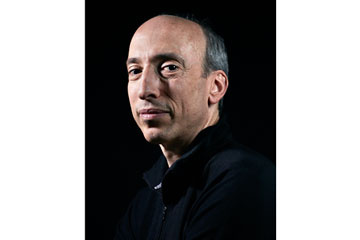
(3 of 4)
The fact that Gensler didn't ignore the LIBOR problems may in some ways be an atonement for the earlier role he played in the deregulation of financial markets. In the Clinton Administration he worked with Treasury Secretary Robert Rubin and later was an Under Secretary to Rubin's successor, Larry Summers, who passed the Commodity Futures Modernization Act. That law exempted credit-default swaps--those exotic securities that exploded our economy in 2008--from regulation.
"Knowing what we know now, those of us who served in the 1990s should have done more [to protect] the derivatives markets," says Gensler. And unlike others on the team, he was brave enough to make a public mea culpa and also fight back when it seemed the Obama Administration wanted to return to the status quo. He wrote a letter to Congress in 2009 urging that new derivatives rules be strengthened; critics claimed that more regulation would raise the cost of capital and add red tape.
Even some opponents of Clinton-era deregulation offer praise for Gensler. "I think he's done an impressive job," says Joseph Stiglitz, former chairman of the Council of Economic Advisers. "He's someone who doesn't just say, 'Trading is good,' but who really thinks about the social value of finance."
As the son of a vending-machine small-business owner who grew up in a middle-class Jewish family, Gensler had early exposure to the real-world side of finance. His father would draft Gary and everyone else in the family to "go around to the bars of Baltimore with this nickel-counting machine" so he could make the weekly payroll.
Gensler turned out to be a math whiz and went on to earn both his undergraduate degree and his M.B.A. from the University of Pennsylvania's Wharton School. (He was an undergrad alongside his twin Robert, now a fund manager.) After Wharton, Gensler began a successful 18-year career at Goldman Sachs, eventually working under Rubin, who was a partner running a trading desk and starting up the risk-arbitrage unit. While the two weren't personally tight ("It was always a business relationship," says Gensler, ever tactful), Rubin was a good judge of talent, eventually exploiting Gensler's quantitative thinking on trading as the firm's focus shifted further and further to that more profitable--and risky--area of business.
Rubin then brought Gensler into the Clinton Administration. (Gensler later worked as an adviser to Hillary Clinton during her 2008 campaign.) But in 1998, Gensler's wife had a flare-up of cancer, which had plagued her since they met. By 2005 the family was taking their last vacation together, to London, with Francesca in a wheelchair. The next year, as she lay dying in hospice in a medication-induced haze, Gensler says, "I took her hand and talked about all the vacations we had taken together, and I was laughing and saying, 'Wasn't this great?' and 'Remember that?' " He pauses, his face softening, and then he smiles. "She opened one eye and gave me this wry little smile. That was her goodbye."
The family is still very tight-knit--and somewhat competitive. Gensler's book The Great Mutual Fund Trap took aim at his brother Rob's industry, which he felt was overcharging people. "It's like, Do you really need that much of a spread for the middleman? There are a lot of bad practices out there in finance."
